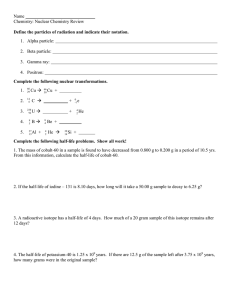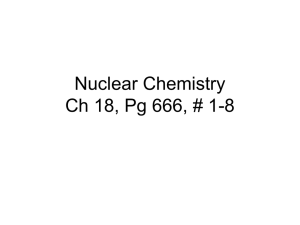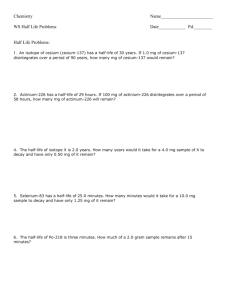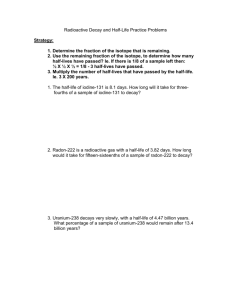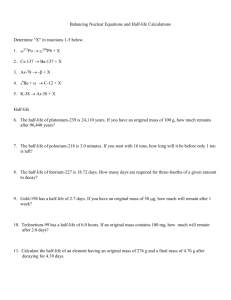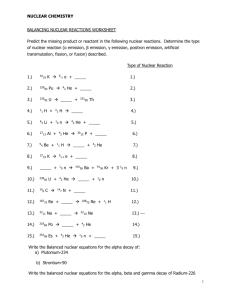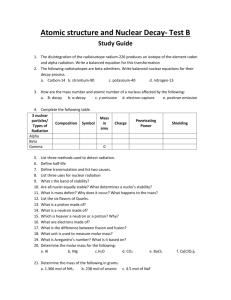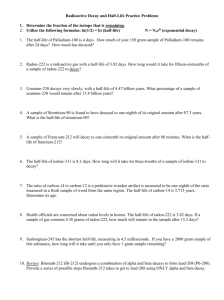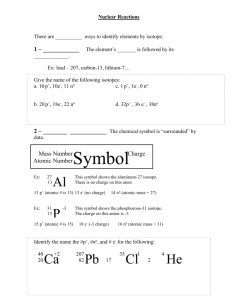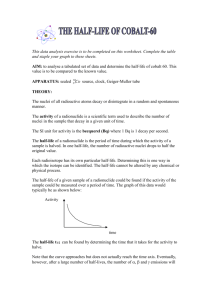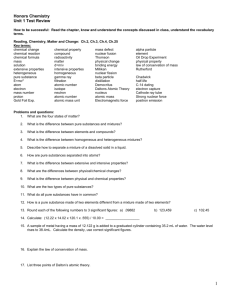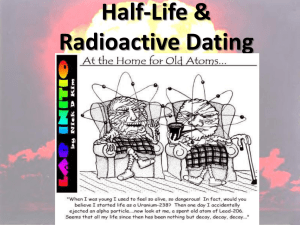Half-life & Nuclear Equations
advertisement
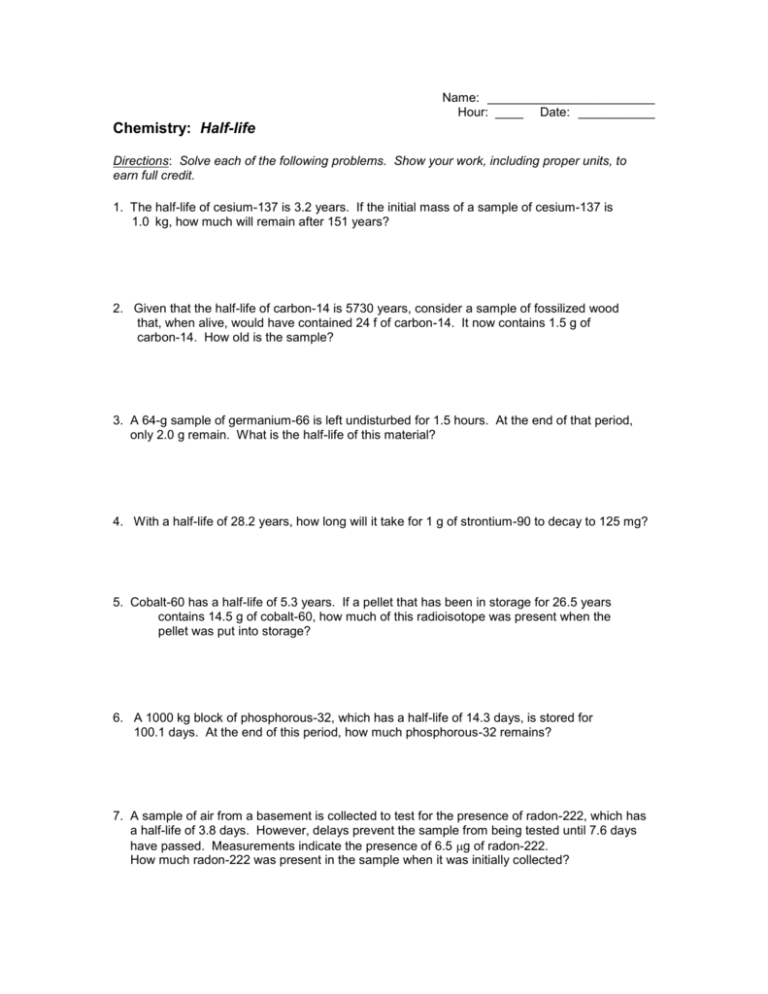
Name: ________________________ Hour: ____ Date: ___________ Chemistry: Half-life Directions: Solve each of the following problems. Show your work, including proper units, to earn full credit. 1. The half-life of cesium-137 is 3.2 years. If the initial mass of a sample of cesium-137 is 1.0 kg, how much will remain after 151 years? 2. Given that the half-life of carbon-14 is 5730 years, consider a sample of fossilized wood that, when alive, would have contained 24 f of carbon-14. It now contains 1.5 g of carbon-14. How old is the sample? 3. A 64-g sample of germanium-66 is left undisturbed for 1.5 hours. At the end of that period, only 2.0 g remain. What is the half-life of this material? 4. With a half-life of 28.2 years, how long will it take for 1 g of strontium-90 to decay to 125 mg? 5. Cobalt-60 has a half-life of 5.3 years. If a pellet that has been in storage for 26.5 years contains 14.5 g of cobalt-60, how much of this radioisotope was present when the pellet was put into storage? 6. A 1000 kg block of phosphorous-32, which has a half-life of 14.3 days, is stored for 100.1 days. At the end of this period, how much phosphorous-32 remains? 7. A sample of air from a basement is collected to test for the presence of radon-222, which has a half-life of 3.8 days. However, delays prevent the sample from being tested until 7.6 days have passed. Measurements indicate the presence of 6.5 g of radon-222. How much radon-222 was present in the sample when it was initially collected? 8. A 0.500 M solution of iodine-131, which has a half-life of 8.0 days, is prepared. After 40.0 days, how much iodine will remain in 1.0 L of solution? Express the results in moles. 9. The half-life of sodium-25 is 1.0 minute. Starting with 1 kg of this isotope, how much will remain after an hour? 10. What is the half-life of polonium-214 if, after 820 seconds, a 1.0 g sample decays to 31.25 mg? Chemistry: Nuclear Equations 1. Bombardment of aluminum-27 by alpha particles produces phosphorous-30 and one other particle. Write the nuclear equation for this reaction and identify the other particle. 2. Plutonium-239 can be produced by bombarding uranium-238 with alpha particles. How many neutrons will be produced as a by-product of each reaction? Write the nuclear equation for this reaction. 3. Neutron bombardment of plutonium-239 yields americium-240 and another particle. Write the nuclear equation for this reaction. 4. When bombarded with neutrons, lithium-6 produces an alpha particle and an isotope of hydrogen. Write the nuclear equation for this reaction. What isotope of hydrogen is produced? 5. With what particle would you bombard bismuth-209 to produce astatine-211 and two neutrons? Express this reaction in the form of a nuclear equation. 1. 0.0313 kg 6. 7.81 g 2. 23,000 years 7. 26 g 3. 18 minutes 8. 0.016 mol 4. 90 years 9. 9 x 10-7 g 5. 460 g 10. 160 s
